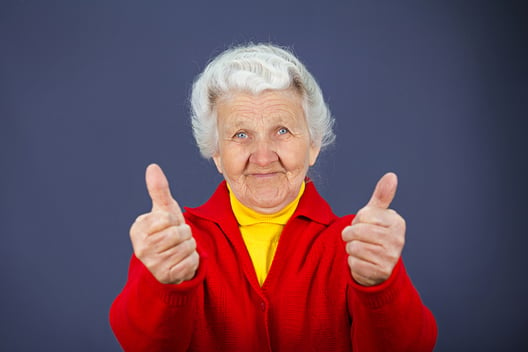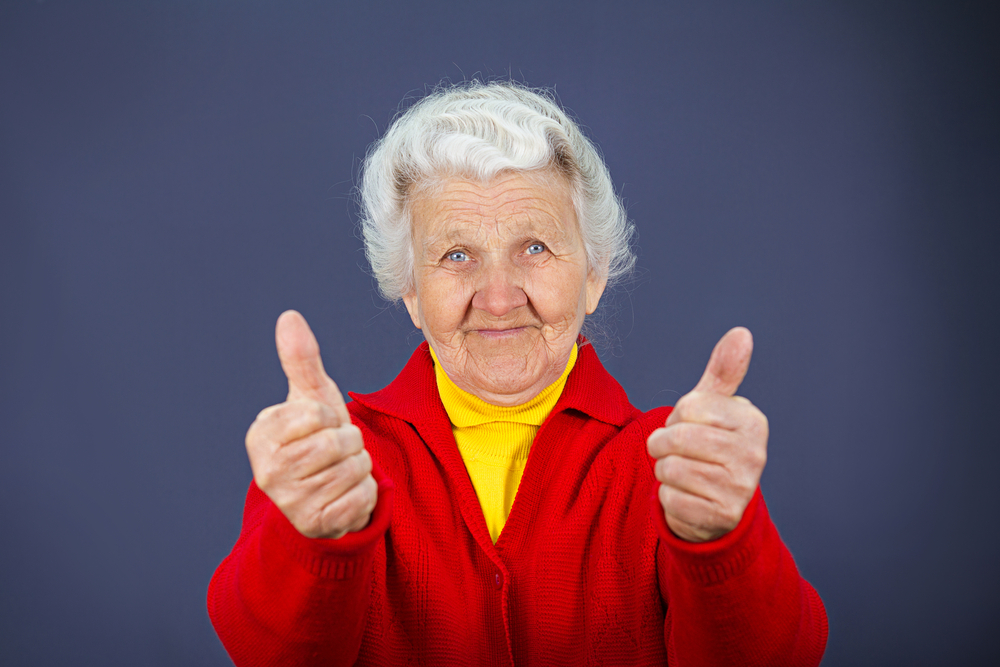So, you have been looking around trying to figure out the best ways to help your aging loved one as they start to need more help from you and others. You may have talked to assisted living facilities, home care, or group homes to consider the options. You know their wishes are to stay at home but you worry about their safety. These are all very normal concerns and thought processes that go on during this stage of aging and working with our senior loved ones. One of the things that may have stuck out in your mind is--aging is really expensive! Sometimes we overlook the ability of people to actually thrive on their own if given the right opportunities. Just like children and younger adults, seniors can improve their health especially if they are motivated and see a path forward.

If you Motivate the Mind, the Body will Follow
If you do further research, you may start to see a trend that motivated people across all phases of life to do better than people that just let life happen. This is pretty much common sense--but then why do we think seniors can’t or won’t thrive? The answer often is motivation and if seniors feel like they have nothing to look forward to, they start to feel hopeless. When this happens, other facets of their life can fall apart like proper nutrition or medical care. Research shows us that focusing on just 4 factors in life can have a major impact on staying healthy–and motivated! If your loved one is reluctant to try and improve their circumstances, it’s often because they are not getting one or more of these key aspects of their life met.
- Mind--think social and mental activity
- Body--Physical activity like walks, cleaning, and even cooking
- Nutrition--Making sure we are getting the proper balance in the diet
- Safety--A safe home environment with adequate emergency protections
Trying to meet all of these key factors is often the reason family caregivers experience burnout. One suggestion to reduce the workload and increase the chances of success is following a process that starts with the mind. For example, start with something simple like your loved one's favorite meal. The aroma of a favorite meal has a powerful impact on the senses and often starts people thinking about the past, hopefully opening up conversation and reminiscing. Sharing the meal and chatting usually creates an easier environment to eat and can start the process of improving nutrition. Other people mention they began asking questions about people in old photos and it helped open up communications with their loved ones.
There are really nice tools available today to help our seniors get involved in technology. There are a number of senior-friendly devices that allow families to communicate or seniors to experience more of the world without leaving home. When people have a better mental outlook, they tend to want to work on the other aspects of their life–like exercise, accepting medical advice, and so on. Take a look here for some information on senior-safe tablets and Metaverse products that are helping seniors experience life like their grandkids! These are safe systems promoted by AARP and others that are equally concerned about safety from those that prey on seniors.
For most of us, it makes inherent sense that once someone is happier they will also want to do things to keep that happy feeling going. So eating right, getting some physical activity, and taking medications properly start to become less of a chore and more of something you do to keep the positivity going. We’ve all heard that exercise releases endorphins that make you feel good–first you have to get someone to exercise to experience them! It starts with the mind.
Following through on Motivation when it gets more complicated
Once we have made an impact on our loved ones to get their mind motivated, it may not be a simple process for them just to start improving. Often, seniors have multiple diseases they are dealing with that impact their ability to thrive. Being hospitalized and coming home to the same environment can lead to re-hospitalization if nothing changes. Each time seniors are re-hospitalized, they can get weaker and the likelihood of them being able to live at home starts to diminish. This is considered by many the spiral down that can lead to losing choices in many aspects of life. This can include losing driving, the choice of where you are going to live, and how you are going to live safely. So, how does a family caregiver work with medical professionals to make sure their loved one makes headway to better health? We already know there is heavy burnout among family caregivers. As lay people, following the complexity of multiple diseases, medical terminology, and meeting with doctors and specialists just adds to the fray. Involving an RN or social worker that has medical experience as a case manager can help. Expert help to work with the family caregiver and your senior loved one can help put together a process and develop a roadmap that makes sense for everyone.
Why Insurance Companies rely on Nursing Professionals
For most family caregivers, trying to add the complexity of being a medical expert and advocate is a heavy burden. Insurance companies long ago started looking at having RN Care Managers follow complex cases to see if it helped with the outcomes. Now, insurance companies regularly will assign a nurse to oversee cases where the insured has been re-hospitalized for the same illness. Because Medicare is quite interested in lowering costs and is the primary payer for senior care, they have authorized many studies for ways to reduce costs and improve results for seniors. The data we used here is from the International Journal of Endocrinology and Metabolic Disorders which looked at several different diseases:
- Diabetes
- Cancer
- COPD
- Hypertension
- Heart Failure
- Coronary Disease.
The report looks at both qualitative and quantitative results that help us understand that in most instances the patient both felt better and had better results overall. We like the fact that it looked at how the patient felt and not just what the numbers were! Results were not always positive but overall, the study demonstrated
“Nurse case management is widely practiced, in providing good quality care for patients with non-communicable diseases. The review shows that patients with Non-communicable diseases (NCDs) such as diabetes, Coronary heart disease, COPD, and cancer receive a better form of care by applying this nurse case management model with the available resources for patient care. There is a significant reduction in morbidity and mortality associated with NCDs. Patients’ satisfaction has significantly improved and also become cost-effective. Further, this model paves way for the integration of different levels of health services that results in increasing competency of nurses involved in case management.”
If you’re one of those people that like the data you can get it here. The report is a technical paper on how case management helped people with certain types of NCD’s.
With some help from family, friends, and perhaps professionals you can help your senior loved one live a happier life!





